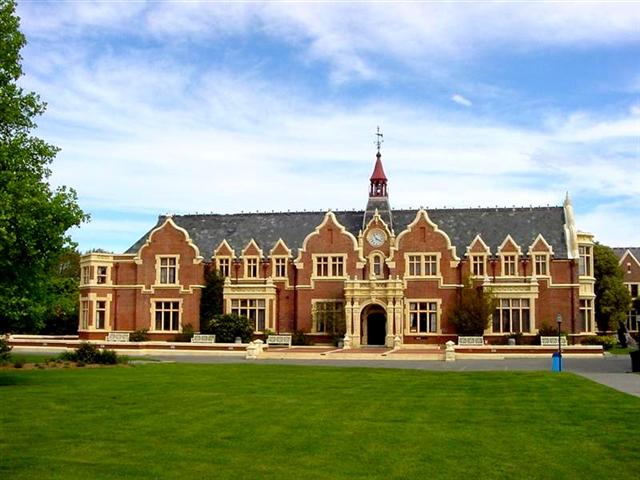Solution for: University of Westlands
Answer Table
| 1. B | 6. B |
| 2. C | 7. C |
| 3. economics | 8. B |
| 4. (meeting) deadlines (for essays) | 9. D |
| 5. attendance | 10. A |
Exam Review
University of Westlands

Lecturer:
Good morning and welcome to the University of Westlands. My name is Marcia Mayhew and I’m the co-ordinator of the Bachelor of Social Science degree. This morning I’d like to tell you about the structure of the university and about some of the requirements of the degree that you’re about to enter. The Bachelor of Social Science is in one faculty within the university, that is the faculty where I work, known as Arts and Social Sciences. Here on this campus we also have the faculties of Architecture, Law and Science and Technology among others. It’s important to know something about the structure of the faculty because, as you go through your course, you may need to call on members of the staff to help you.
At the top of the faculty we have a dean and below the dean we have three divisions; each division has a divisional head and your degree is located in the Division of Social Sciences. Within each of the divisions, there are the departments and each of these offers the different degrees. For instance two of the departments which offer the major subjects for your award are Sociology and Psychology. Each has a departmental head but for practical purposes the people you are going to see the most of are myself as co-ordinator of the social sciences degree and the actual lecturers who are teaching the subjects that you are taking. For instance in the first semester you’ll be doing four subjects psychology sociology history and economics.
If you have any problems or difficulties, not that I’m anticipating you will, but you never know, then you should go and see your lecturers. For instance, you may find that you can’t meet a deadline for an essay or perhaps you're having problems with attendance. These seem to be the two most common problems that students face.
If your lecturers are unavailable, you can always come and see me in my office. I’m available on Wednesday and Thursday mornings and on Friday afternoons. Outside these hours, perhaps you could ring the secretary and make an appointment.
Now you’ll note that all of the subjects which you undertake in the first year are composed of lectures and tutorials. A lecture is about an hour long and a tutorial usually runs for about two hours. A lecture is rather like what I am doing now where one person will talk to all of you together on a subject. We do ask you to try to attend the lectures.
A tutorial is perhaps where most of the learning occurs at a university. You will be divided into groups of between 12 and 15 students and each week one of you will have to present a piece of work to the group as a whole and then the group will discuss what you’ve said. It’s this discussion, this exchange of ideas, which really constitutes the basis of university learning, in my view. Listening to lectures in many ways is just giving you information that you could access for yourself in the library but the discussion at the tutorial is very important. This doesn’t mean that you shouldn’t go to the lectures though!
Other factors to be particularly concerned about are the structure of essays and delivery of written material and in particular I would like to mention the question of plagiarism. Plagiarism is taking other people’s work without acknowledging it, that is, without saying where it comes from. Of course all essays are based on research done by other people but, you must, remember to attribute the work to the original writer. And while it’s a good idea to work with other people don’t hand in work which is exactly the same as your friend’s work because we will notice! If you don’t acknowledge the source of your information then you run the risk of failing the subject, or in very serious cases you might, be denied entry to the university.
Last but not least, stay in touch with us. If things are getting you down, don’t go and hide. Come and talk to us about it. That’s what we are here for. Right,
thank you very much for coming along today.
Questions 1-2
Choose the appropriate letter A,B,C or D.
1 The speaker works within the Faculty of
A Science and Technology.
B Arts and Social Sciences.
C Architecture.
D Law.
1. Answer: B Locate Listen from here
2 The Faculty consists firstly of
A subjects.
B degrees.
C divisions.
D departments.
2. Answer: C Locate Listen from here
Questions 3-5
Complete the notes write NO MORE THAN THREE WORDS.
|
The subjects taken in the first semester in this course are psychology, sociology, history and 3
Answer: economics Locate Listen from here. Students may have problems with 4
Answer: (meeting) deadlines (for essays) Locate Listen from here and 5 Answer: attendance Locate Listen from here. |
Questions 6-10
Choose the appropriate letter.
6 The speaker says students can visit her
A every morning.
B some mornings.
C mornings only.
D Friday morning.
6. Answer: B Locate Listen from here
7 According to the speaker, a tutorial
A is a type of lecture.
B is less important than a lecture.
C provides a chance to share views.
D provides an alternative to groupwork.
7. Answer: C Locate Listen from here
8 When writing essays, the speaker advises the students to
A research their work well.
B name the books they have read.
C share work with their friends.
D avoid using other writers’ ideas.
8. Answer: B Locate Listen from here
9 The speaker thinks that plagiarism is
A a common problem.
B an acceptable risk.
C a minor concern.
D a serious offence.
9. Answer: D Locate Listen from here
10 The speaker’s aims are to
A introduce students to university expectations.
B introduce students to the members of staff.
C warn students about the difficulties of studying.
D guide students round the university.
10. Answer: A Listen from here
Other Tests
-
-
Total questions: 10
- 10- Summary, form completion
-
-
-
Total questions: 4
- 4- Multiple Choice
-
Total questions: 4
- 4- Summary, form completion











